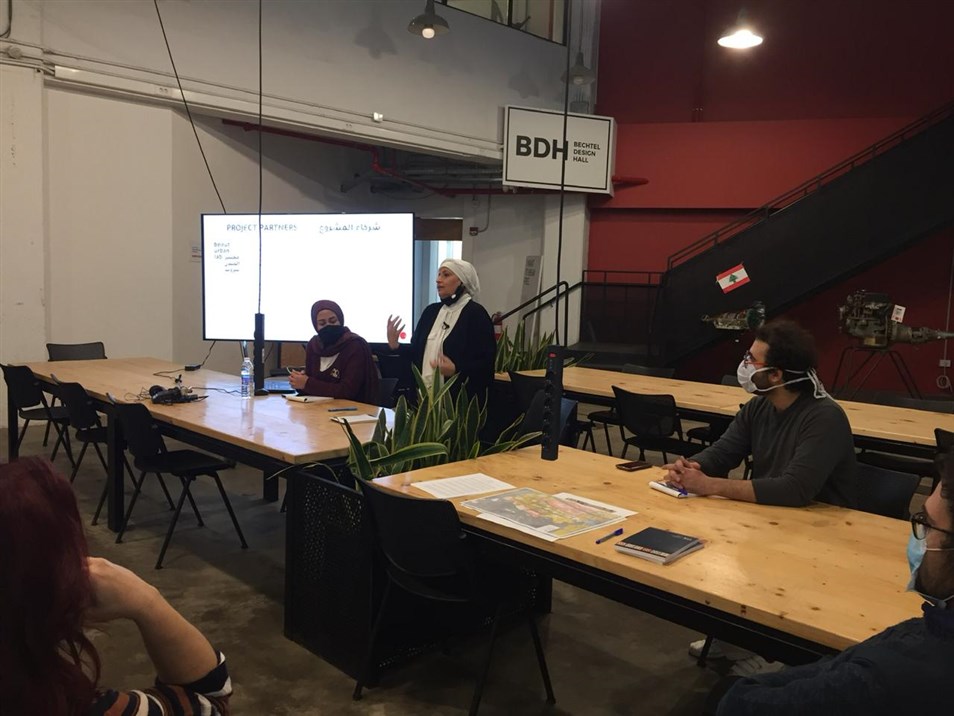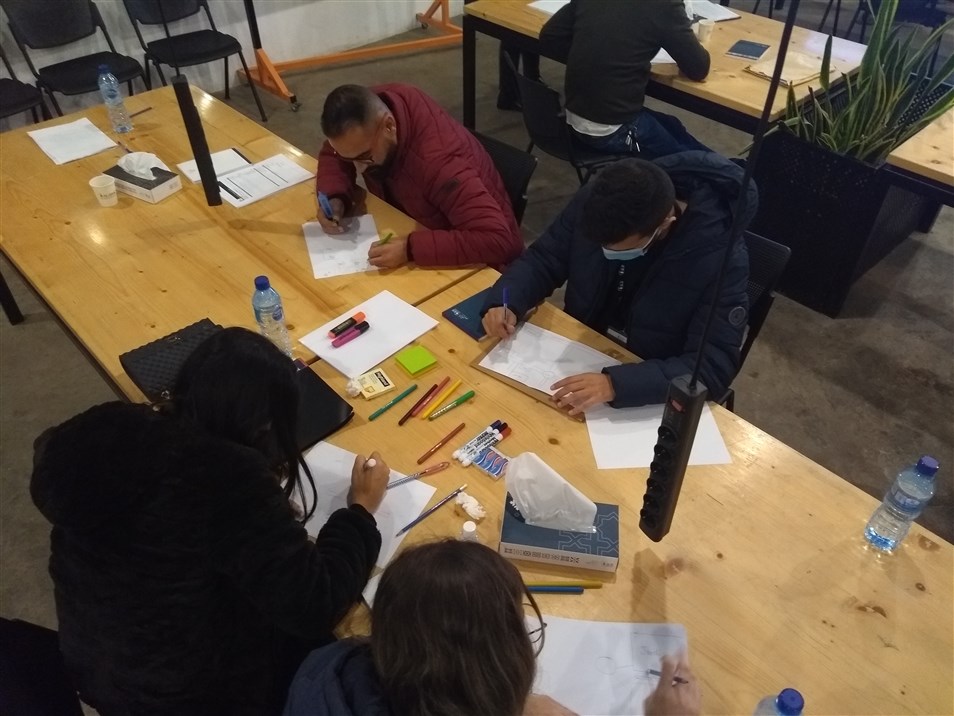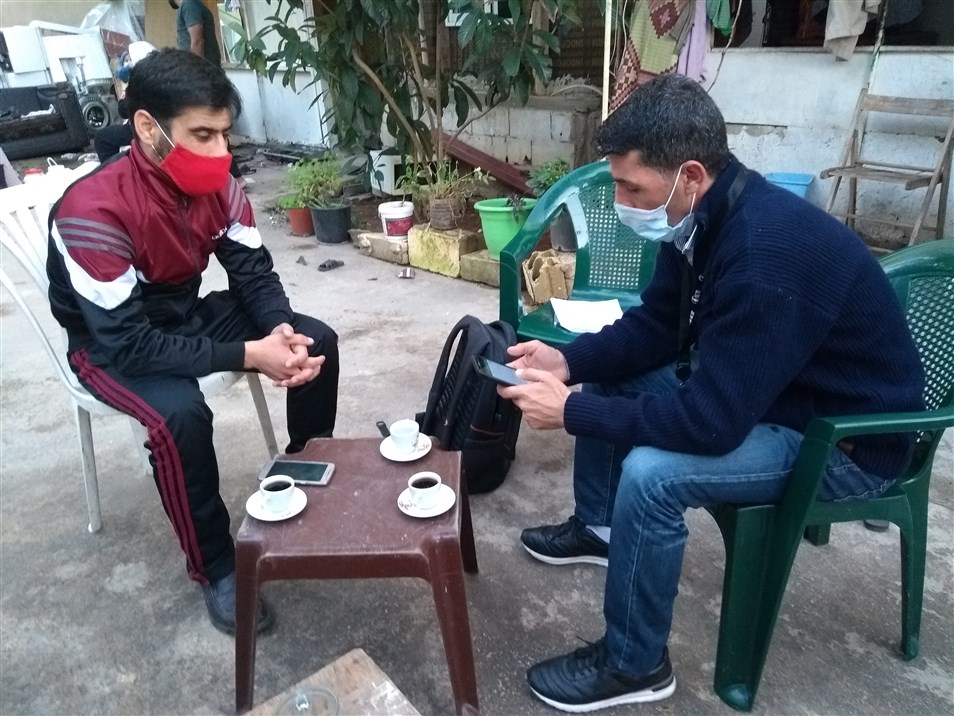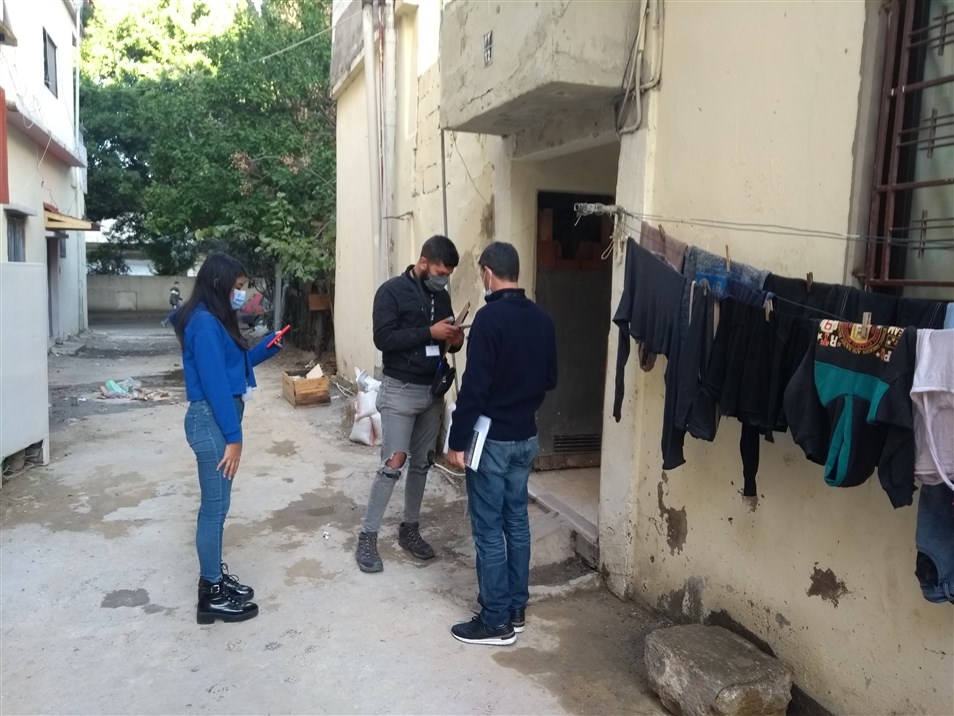The Beirut Urban Lab held a training which included a 2-day professional workshop that took place at AUB on Dec 14-15, 2020 and was followed by a two-day field training on Dec 21-22, 2020. The workshop addressed the project and its objectives, research methods, research ethics, and tools for conducting research.
×
As part of its initiatives in response to the Beirut Blast, the Beirut Urban Lab is mobilized to assist in the urban recovery of Karantina, one of the most vulnerable neighborhoods impacted by the Port’s explosion. We are working towards a bottom-up, inclusive, and holistic recovery that is people-centered, socially-just, and heritage-led. To launch the project, the Karantina research team collected preliminary data and connected with the community of residents and actors. The team interviewed residents, business owners, mukhtars, key community members, and key actors to understand the dynamics taking place on the ground, record people’s concerns about the reconstruction process, and coordinate work among the different actors as a first phase.
×
Following the initial phase, and in order to put the project on track towards data collection, envisioning and designing of the recovery framework, the team adopted the Citizen Scientist methodology. The methodology aligns with the values and objectives of our people-centered and participatory urban recovery that considers local needs, practices, and culture. It is a community-based research training done with and for the community. It aims to give local people the power to understand and change their circumstances. We, thus, recruited and trained 12 local researchers who live in Karantina. The participants were selected from different age groups, genders, nationalities, educational levels and backgrounds, and religions. We tried to ensure the formation of a diverse and inclusive team that reflects the population's diversity on the ground. The local researchers were compensated for their time and efforts.

Howayda Al-Harithy leading on the Citizen Scientists training at AUB in December 2020 (Photo: Mohamad El Chamaa)

Citizen Scientists practicing their research skills at AUB in December 2020 (Photo: Ali Ghaddar)
×
The training included a 2-day professional workshop that took place at AUB on Dec 14-15, 2020 and was followed by a two-day field training on Dec 21-22, 2020. The workshop addressed the project and its objectives, research methods, research ethics, and three tools for conducting research: field observations, semi-structured questionnaires, and mental maps. They were also trained on using digital tools (Survey 123 and Collector). The training sessions took the form of an interactive seminar in which the trainer presented the project and the methodology and launched a discussion with the participants about the different sections.

Citizen Scientist interviews a resident of Karantina in a small open space (Photo: Ali Ghaddar)

Citizen Scientists collect geolocalized observations in Karantina (Photo: Ali Ghaddar)
×
After that, the participants were coupled with trained researchers from the Beirut Urban Lab for two days in Karantina to facilitate the process of fieldwork, data collection, and guarantee a precise implementation of the process. Weekly meetings were organized to follow up with the participants, update on the work progress, address challenges and difficulties, and discuss preliminary findings. The data that local researchers collected was more detailed and included: socio-economic family and individuals profiling (age, gender, nationality, education, employment, health condition, tenure), damage assessment, aid and relief efforts after the blast, public space and socio-spatial practices, neighborhood quality and belonging, social/political activity, neighborhood conception, and neighborhood vision.